Planning the end: Barbara Filion looks to Vermont for medical aid in dying
|
Published: 03-02-2024 7:30 AM
Modified: 03-04-2024 1:04 PM |
Barbara Filion made her way carefully to the kitchen, sidestepping furniture, making sure her footing remained steady as she opened her freezer stocked with tubs of chocolate ice cream swirled with white chocolate.
“This is the best!” she declared, digging her spoon into the container and savoring each bite of her favorite flavor of the brand she passionately mispronounces as “Millamook” as a mid-day treat. “I can never tell myself to stop!”
With each spoonful of ice cream, Filion’s face lit up with delight. But as soon as she stashed the tub in the freezer, a familiar pain began to creep back into her body.
Her stomach ached. Her bones hurt. Her body felt fatigued.
At 82, Filion has battled metastatic bone cancer for 14 years. The disease has gradually sapped her strength and left her bones brittle.
“It’s really scary. I’m scared of a fracture the whole time,” Filion said, pointing to her femur as she sat in the living room of her Portsmouth home. “I’m scared of that every day.”
She doesn’t want to be confined to the bed for months, waiting for death to slowly arrive. She wants to end her life soon, on her own terms. What she’s been longing for – medical aid in dying – appears to be within reach with a trip away from home where these procedures are illegal to neighboring Vermont where laws are more permissive to end-of-life decisions.
“I am ready. I’m totally ready,” Filion said, as she and her daughter, Marsha, prepared for their first visit across state lines to discuss her decision to legally obtain prescription drugs for terminally ill patients who want to end their lives.
Article continues after...
Yesterday's Most Read Articles
Vermont joined the other few states in allowing people with terminal illnesses to self-administer life-ending drugs in 2013, and last year, they became the first state in the country to adopt legislation allowing the option for qualifying patients, regardless of the state they legally reside.
Multiple states, including Maine, New Jersey, Vermont, New Mexico, Montana, Colorado, Oregon, Washington, California, and Hawaii, have death-with-dignity laws. The term relates to self-administering a lethal amount of drugs prescribed by a physician, as opposed to a doctor administering the drugs directly, which is euthanasia.
Initially, Filion pondered the idea of traveling to Switzerland, where physician-assisted dying has been legal since 1942. Vermont’s new law allowing non-residents to access the practice presented a new option, which came as a relief to her and her family.
Traveling to Switzerland would cost around $11,000. In Vermont, according to Patient Choices Vermont, a nonprofit advocating for end-of-life options, the costs for the drugs are $750. Other costs need to be factored in, including transportation of a body back home.
For each step in the process, from doctor appointments to obtaining prescriptions and taking the medication, everything must be done in Vermont. If Filion decides to take the medication at home in Portsmouth, it could cause legal complications for her family or the doctors back in Vermont.
Since December, Marsha Filion has been diligently attempting to reach someone in Vermont to understand the logistics and procedures for her mother. It wasn’t until February that she finally made contact with someone and successfully scheduled her mother’s first appointment.
“It is cumbersome. That’s if you even get through to anybody,” said Marsha, who is the executive director of the Hospice Help Foundation. “It’s almost like they’ve made this available without realizing how great the need is.”
The drive to Vermont may only take a couple of hours, but the journey involves far more than mere distance. Before an out-of-state resident considers the option to end their life, there are several aspects to be considered.
A hospice team needs to ensure the individual’s comfort, provide support for the family and also call the time of death. Suitable accommodations must be found where the individual can receive medical aid in dying, which could mean arranging a friend’s place, securing a home-stay, or even booking a hotel room catering to these needs.
“Lots of people call very interested in the option of using medical aid in dying but often when they consider the practicalities, it’s been a big factor for people actually coming and using it,” said Betsy Walkerman, president of Patient Choices Vermont.
Vermont has been welcoming to out-of-state residents with some AirBnB rentals and even a suite at a hotel providing reliable options.
“Home is home. She could be in our home if things were different, which is why she didn’t want to go to Switzerland in the first place,” said Marsha as she looked for her place in Vermont for her mother’s last day.
Since Vermont extended the end-of-life option to out-of-state residents last year, at least 600 individuals from New Hampshire have visited the Patient Choices Vermont’s webpage for non-residents between May and December, according to the nonprofit.
Crossing state lines for end-of-life care options may soon change for New Hampshire residents if House Bill 1283 is passed during this year’s legislative session. The bill would add New Hampshire to the growing list of states that allow medication-assisted dying for state residents.
“There’s no reason they should have to,” said Betsy Walkerman, president of Patient Choices Vermont. “They should be able to rely on their own doctor who they’ve known for a long time and be able to be in their own home.”
The bill would allow individuals over 18 years of age with a six-month prognosis to live to self-administer medication to end their lives. To be eligible, individuals must receive verification from two healthcare providers that they are mentally sound and are not coerced, among other criteria.
Even if a patient is terminally ill and fulfills all the criteria, eligibility hinges on the ability to self-administer the drugs and voluntarily keep them down, which worries Filion as time goes by.
“She’s getting more and more frail. She’s really fearful of an undignified death, that she has no control over where her disease takes control of her body, as opposed to her taking control of her death, ” Marsha said.
It wasn’t an impulsive decision for Filion; it was a culmination of years battling cancer, each day taking a toll on her once-able body.
“For 14 years, she has seen her quality of life go downhill just like many, many seniors or older people. She reached a point where she really wasn’t getting much joy from her life,” said Marsha, who supports her mother’s decision.
Even simple tasks, like bending down to put on socks sent sharp pains through her ribs, while cataracts clouded her vision. Accepting her condition, she said she doesn’t want any more surgeries.
She longed for the independence and vitality of years past, reminiscing about the laughter of her grandchildren and the joy of running alongside them.
“I was for a while faster than they were,” she said.
Now, her steps are measured and slow to avoid any mishap that could fracture her bones and confine her to a bed.
Last week was Filion’s first step in receiving the end-of-life medication – seeing a Vermont doctor for a medical consultation to determine if she is eligible to receive medical aid in dying.
“I just still want to make sure that this is the right thing for her. It’s easy when I’m talking about it and I say I would want something like this. But when you really are faced with a limited number of days, it’s hard to say goodbye to life,” said Marsha.
Once she receives the medication, Filion will hold the power to decide whether to take it or not.
Filion vividly recalls the initial shock on the faces of her doctors in New Hampshire when she shared her decision. They initially tried to talk her out of it. But soon they came to understand her reasoning and stood by her choice.
For those like Filion, it is a means to eliminate the suffering that even hospice cannot alleviate.
“I wanted to stay until Marsha’s birthday in March. But I don’t know. I am so rundown,” Filion said, glancing at her daughter, seated across from her in the living room decorated with memories and artwork collected over the years.
Marsha replied softly, “You don’t need to wait.”

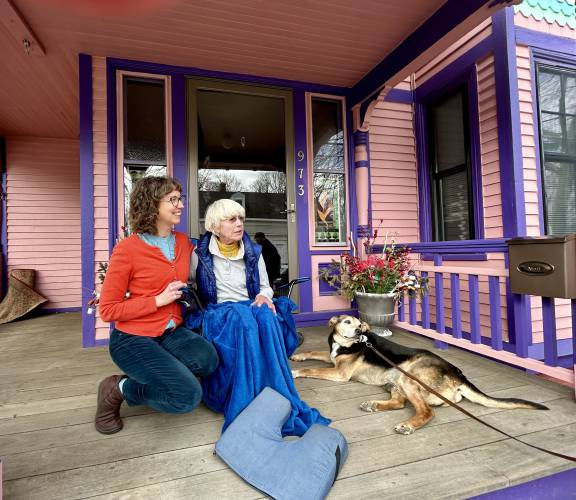
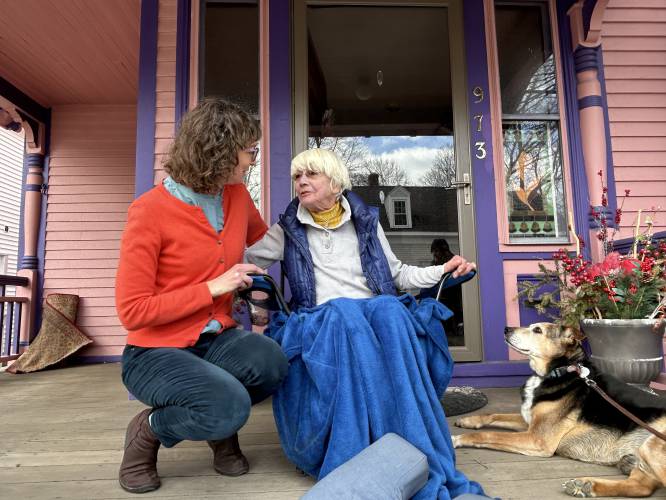
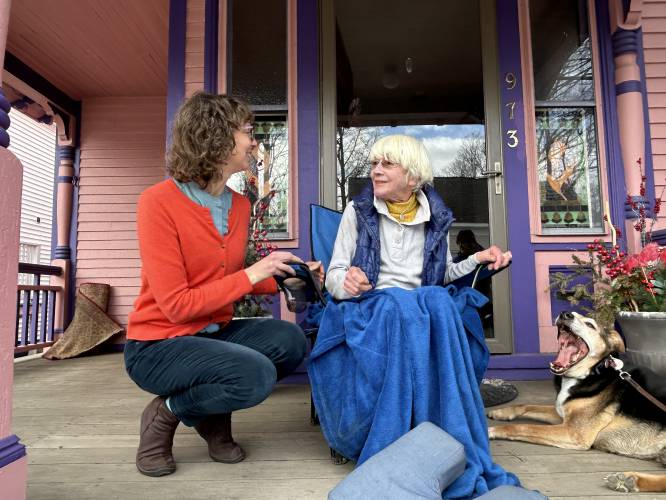
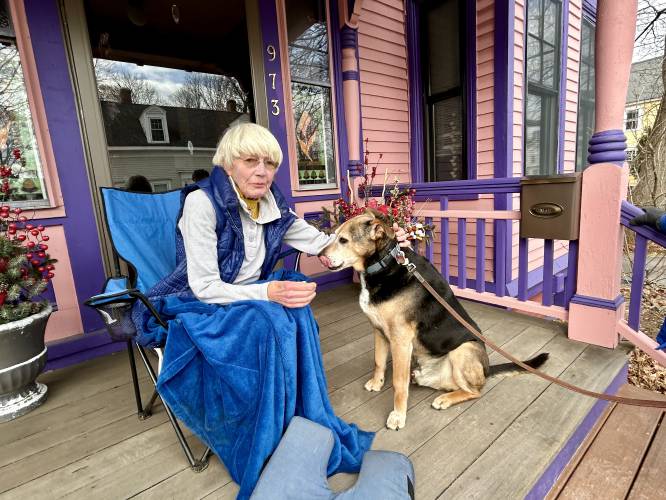
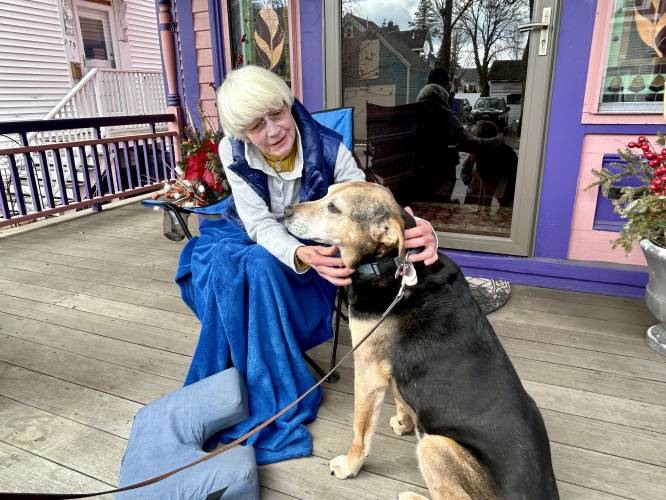
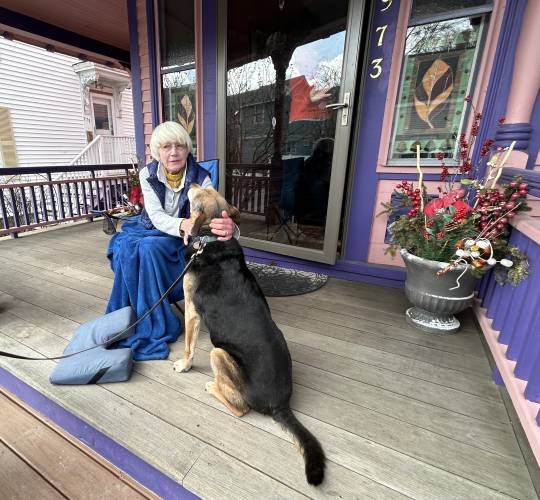
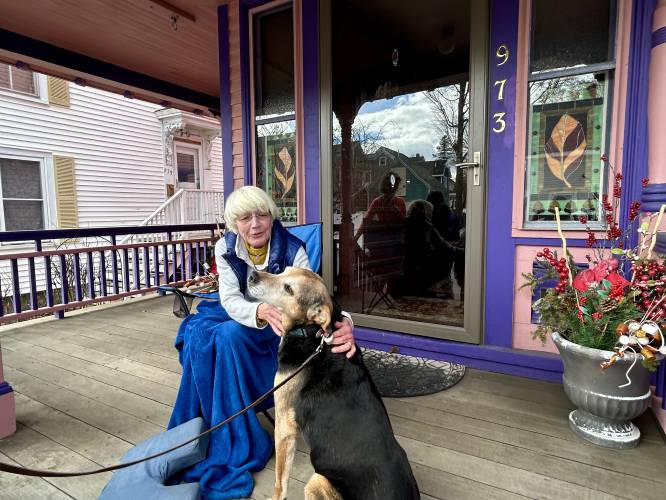
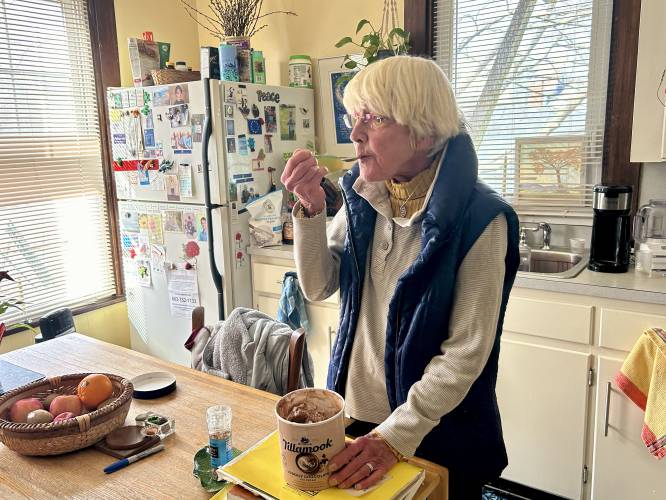






 Canterbury honors ‘real heroes’ with updated Military Veterans’ Project
Canterbury honors ‘real heroes’ with updated Military Veterans’ Project Look, up in the sky! It’s… an Airstream trailer?
Look, up in the sky! It’s… an Airstream trailer? Around Concord: Over The Moon Farmstead brings mead, beer, pizza and music to Pittsfield
Around Concord: Over The Moon Farmstead brings mead, beer, pizza and music to Pittsfield Around Concord: The Balshaws bring a rustic revival to the Canterbury Country Store
Around Concord: The Balshaws bring a rustic revival to the Canterbury Country Store
